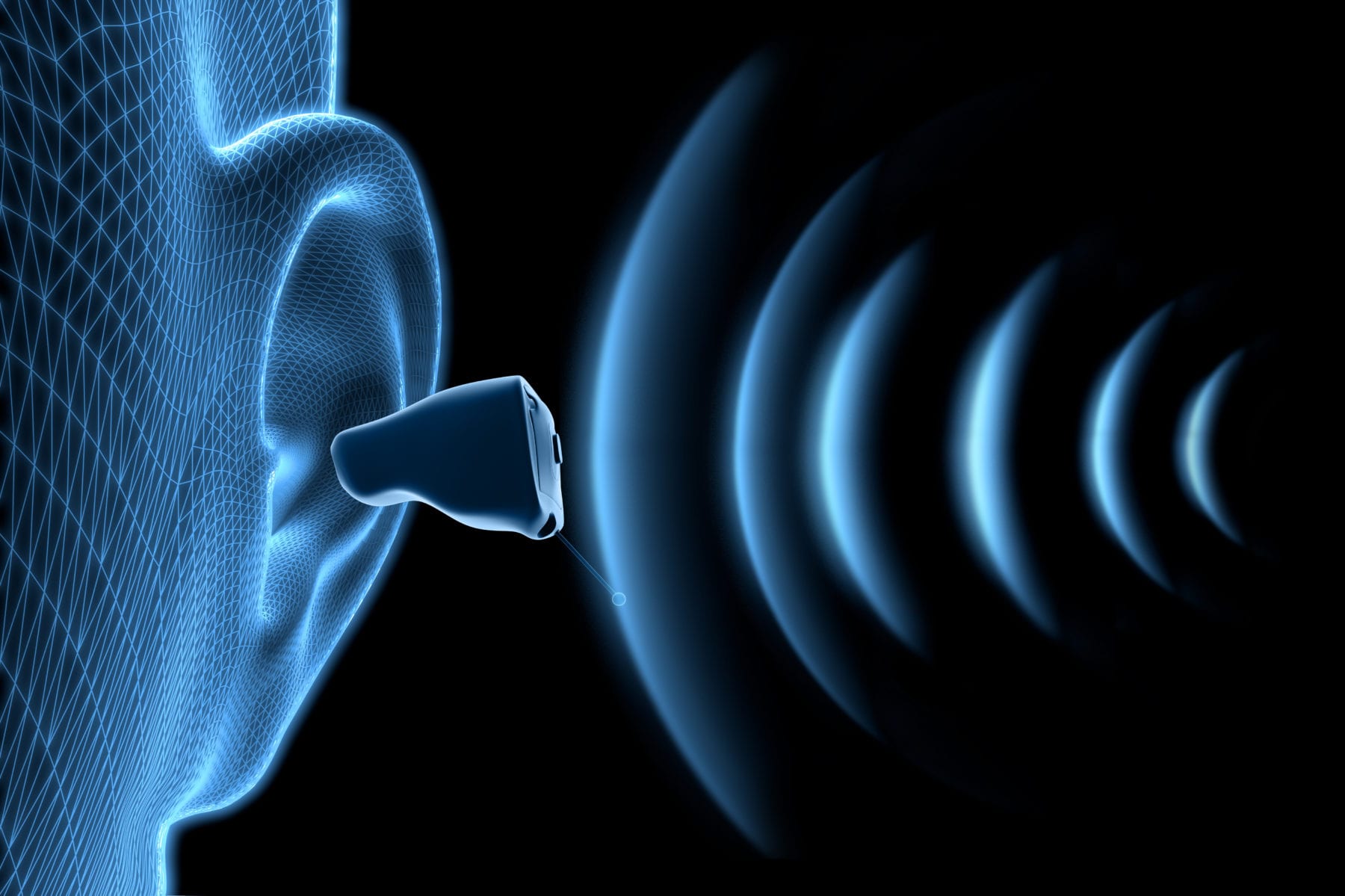Hearing & Ageing
Unfortunately, hearing loss is common among seniors, and currently, hearing loss is irreversible. If you are experiencing hearing loss, you need to see an audiologist to be tested. Hearing loss will not improve over time, in fact, in most cases, it will get worse.
You may have people complain that you don’t hear them (especially if you are a husband). However, that doesn’t mean you have hearing loss, you may not be paying attention. There are signs you can look for if you should get tested and consider hearing aids to help.
- You can’t understand people when you can’t see their mouth
- People complain you turn the TV or radio up too loud
- People sound like they are mumbling
- You struggle to hear when there is background noise
- You ask people to repeat themselves
- High-pitched sounds are hard to hear
- You don’t hear the doorbell or phone ring
This appointment is meant to alleviate any concerns and there is no-cost or obligation to make a change.
Costs of Hearing Aids
Hearing aids are expensive. Thankfully, there are now over-the-counter devices you can buy cheaply if you have mild hearing loss. However, it is still recommended that you see an audiologist to determine if these will help long term.
Hearing aid costs can range from $1000 – $4000. The costs can explain why many seniors are unable to afford hearing devices.
Steps to Protect Your Hearing
Many of us have done damage to our hearing while young. Part of the reason hearing gets worse as you age is that the tiny hair cells in your inner ear slowly break down. When the hair cells deteriorate, you can’t pick up sound vibrations like you did when younger.
That damage grows over time as we age. There are steps you can take to protect your hearing.
- Avoid Loud Music & Sounds. If sounds are so loud you need to shout to be heard, you should wear earplugs to protect your hearing.
- Wear Earplugs. Earplugs are cheap and they can provide protection when you are surrounded by loud noises
- Don’t Smoke. Believe it or not, tobacco has been shown to damage hearing. It damages circulation to the small blood vessels in your ear.
- Remove earwax. Clean your ears regularly because the wax can impair hearing.
- Check your medication. Some medications can damage hearing as a side effect.
- Let Your Ears Recover. Believe it or not, if exposed to loud noises you can recover some of the damage by resting your ears. Researchers have found that your ears need an average of 16 hours of quiet to recover from one noisy night out.
- Keep your ears dry. Wet ears can cause an infection that damages hearing over time.
- Exercise. Anything you can do that improves circulation will protect your hearing.
- Manage Stress. Stress and anxiety can contribute to tinnitus which is a common cause of hearing loss.
Medicare and Hearing Aids & Tests
Medicare provides enormous healthcare benefits for seniors, but it doesn’t cover everything.
Here’s a short list of the items and services not covered by Original Medicare:
- Long-term care (also called Custodial care )
- Most dental care
- Eye exams related to prescribing glasses
- Dentures
- Cosmetic surgery
- Acupuncture
- Hearing aids and exams for fitting them
- Routine foot care
Unfortunately, hearing aids are not covered under Original Medicare. In fact, since Congress established Medicare in 1965, hearing aids have been excluded. However, recent legislation has expanded ways to still find coverage.
Part B Medicare
You may find some hearing coverage under Part B Medicare. Part B is the portion that pays for doctors and specialists visits. It can pay for hearing exams if they are deemed medically necessary by your physician.
Under Medicare regulations, this is referred to as an audiologic diagnostic test. There is very specific language that defines this audiology benefit and qualification. You can find the full text of the Medicare benefit at Medicare Benefit Policy Manual at Chapter 15, Section 80.3 [PDF].
If hearing damage reaches the level you need a cochlear implant or bone-anchoring hearing aid (BAHA), can be covered. Because they are considered prosthetic devices and require surgery, they can be covered by Medicare. This does not mean the full cost of the surgery will be covered. You will still be responsible for copays and deductibles unless you have a supplement policy to make up for the out-of-pocket costs.
You would be responsible for the 20% of the Medicare-approved amount for any hearing test that is approved by your physician. Also, before Medicare pays its portion, you must meet the Part B deductible.
Medicare Legislation & Hearing
Because Hearing issues are common among seniors. Many groups continue to put forward legislation to expand Medicare benefits to include hearing aids and testing. Recent legislation includes the:
- The Medicare Hearing Aid Coverage Act of 2017
- Seniors Have Eyes, Ears, and Teeth Act
- The Medicare Hearing Act, introduced in late 2019
The Medicare Hearing Act has yet to be approved by the House and Senate. Under this piece of legislation, hearing aids for severe hearing loss would be covered. However, over-the-counter hearing aids would not be covered, and only one prescribed pair of hearing aids would be covered every 5 years.
The 2019 legislation proposed allowing Medicare to cover hearing aids for people with severe to profound hearing loss. The legislation is very similar to the 2017 proposal.
Where to find coverage for hearing aids and tests?
Medicare Advantage Plans
If you have any experience researching Medicare Advantage (Medicare Part C), you soon learn that no two plans are alike. They can vary based on the company you choose and where you live.
Contact Medicare Nationwide to learn which carriers have added hearing benefits inside many of their plans. In fact, 88% of Advantage plans do cover hearing aids.
Medicare Supplement Plans
While Medicare Supplement (Medigap) plans tend to be the most flexible of supplemental Medicare coverage, they work together with Medicare. Because hearing aids are not covered by Medicare, Supplements do not cover them either. Medicare Supplement Insurance (also known as Medigap) can help cover your hearing test if it’s covered by Medicare Part B.
Veterans Administration
If you are a veteran, you may find coverage through the VA. If your hearing loss is linked to military service or to a condition treated at the VA, you may be eligible for hearing aids through the VA.
Non Profit Organizations
One other way to find coverage for hearing aids is through non-profit organizations. Many of these organizations provide needs-based assistance. You may feel you do not qualify, but it is worth checking into the various organizations for resources related to hearing.
Here is a list of several non-profits and a summary of what they do:
• Sertoma
Sertoma has organized a list of state organizations that help those who need hearing aids but cannot afford them.
• Audient
Audient is a national alliance of providers that helps low-income individuals obtain hearing aids.
• Starkey Hearing Foundation
This foundation helps people with low-income gain access to hearing aids. Within the Starkey foundation, they run a group called Hear Now. Hear Now is a program that helps low-income Americans gain access to hearing services, such as hearing aids.
• Miracle-Ear Foundation
The Miracle-Ear Foundation gifts individuals in need of hearing aids. There are eligibility standards you must meet to qualify.
• Lions Clubs International
These clubs help individuals in need of receiving testing and hearing aids through the Lions Affordable Hearing Aid project.
• Hearing Loss Association Of America
This organization is a source of current information on financial aid available to those who need hearing services, such as hearing aids.
• The National Hearing Aid Project
This organization is run by the Hearing Charities of America. This group works together to help disadvantaged individuals gain access to hearing services and hearing aids.
If you currently have an audiologist, they can often recommend groups that are not listed here. They will often have payment plans as well.
This appointment is meant to alleviate any concerns and there is no-cost or obligation to make a change.
Trial Programs
One other suggestion for hearing aid assistance is being part of manufacturer trials. Search for hearing aid manufacturers and contact them directly about trials of new products. Many manufacturers will provide hearing aids to test their products as long as you commit to a study and provide quality feedback.
Conclusion
Hearing issues and devices is a sticky subject inside of Medicare. It is not officially covered, but as you see there are continuing attempts to add to Medicare. Medicare is not unique because many private health insurance companies have never provided hearing assistance as well. It has traditionally never been part of health insurance, and is the reason for the uphill battle to have it covered.
If you have hearing issues and are concerned about being covered, have this conversation with one of our agents. There may be programs and Medicare products like Medicare Advantage that might be an option. Just be careful not to sacrifice other coverage by searching for hearing coverage. Consider the full breadth of coverage that various plans provide before making a decision.
Prefer to chat by phone? Give us a call at 1-888-559-0103.

